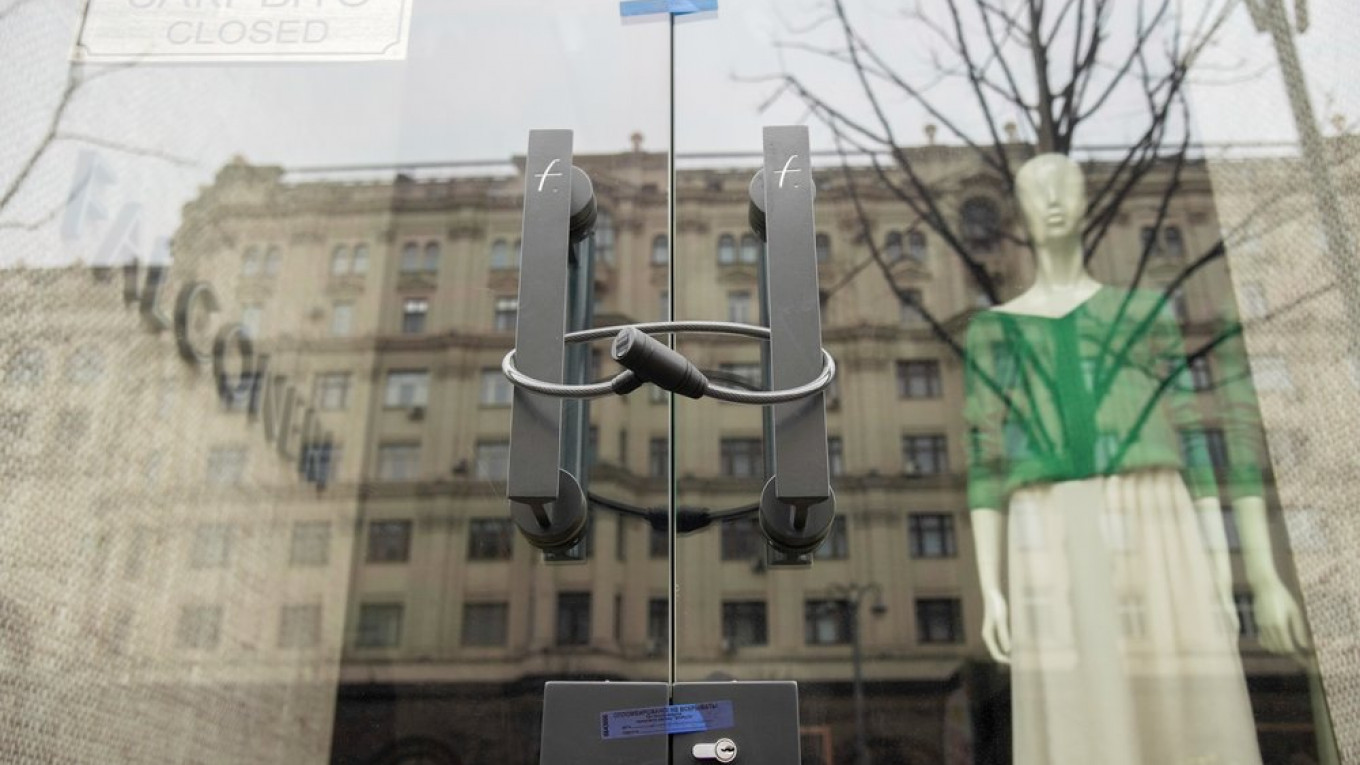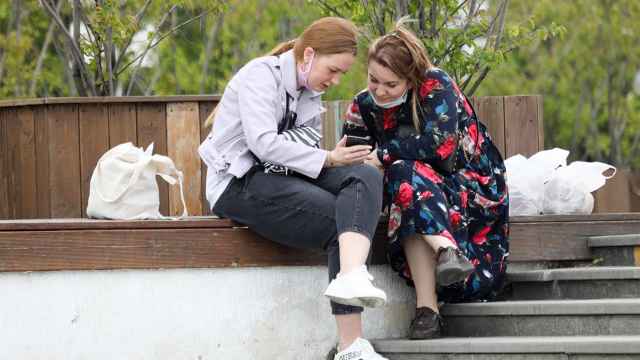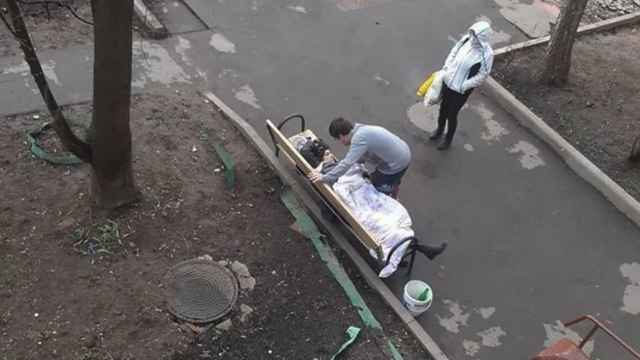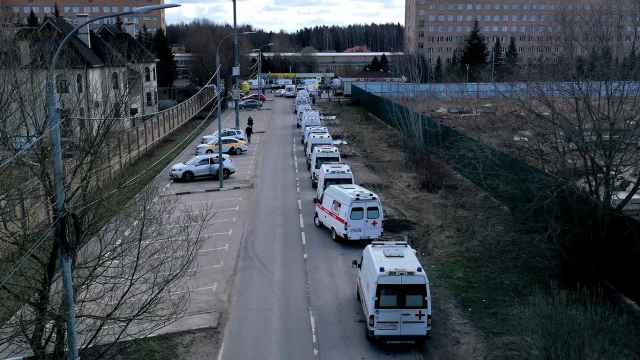Moscow’s small businesses have temporarily shuttered their doors as the city cracks down on the coronavirus pandemic — but many owners fear that they won’t be able to bounce back once the health crisis is over.
Mayor Sergei Sobyanin imposed an indefinite partial lockdown starting Monday to slow the fast-spreading coronavirus, ordering the city’s 12 million residents to stay home and shuttering all non-essential businesses. As many as nine in 10 of Moscow’s restaurants, cafes and bars might not survive the lockdown, an industry representative told the Vedomosti business daily this week.
Vera, the co-owner of independent coffee shop KofeMOLKA, said that while the government has put measures in place to support businesses during the health crisis, they merely offer a temporary respite to what will be long-reaching problems.
“We got a so-called ‘rent holiday,’ so we’re just paying employee salaries and taxes from our savings for as long as we can. The state offers soft loans to make salary payments.”
“But you’ll have to pay all of this back in the future anyway,” she continued. “I don't know what will come next. Many [businesses] will have to shut down completely.”
Alexander, the owner of a small auto parts store, told The Moscow Times that the city’s quarantine order has been “devastating” to his business and warned that it could cripple small businesses in the city completely.
“We see that many people are running low on money during this quarantine. Prices will skyrocket [after quarantine], bringing people’s purchasing power to zero,” he said.
He said an official state of emergency from the government would at least stop some “hardcore” property owners from collecting rent from crisis-hit entrepreneurs, adding that the government should also order a freeze on utility payments like water and electricity.
Anna, the founder and owner of the Mir Puteshestviy tourism agency, told The Moscow Times that her company began to see a decline in trips abroad starting in February.
After Russia suspended international flights, she shifted the company’s focus to domestic tours, but decided to suspend business indefinitely once President Vladimir Putin declared a nationwide “non-working week.”
“We received a tax delay, but I’m not sure whether I will be able to cover these expenses and loan debts after the quarantine ends,” she said, adding that she thinks it would be “better to relieve entrepreneurs of paying taxes altogether.”
She said she doubts that Russia’s tourism industry will recover from the widespread lockdowns, both domestically and abroad, anytime soon.
“Most people couldn’t afford regular trips to other countries even before this crisis engulfed our country. After the pandemic, people will keep their savings for basic needs instead of vacations abroad,” she said, adding that she is already considering closing her company completely.
As Russia’s number of confirmed coronavirus cases has steadily risen in recent weeks and Moscow emerged as the epicenter of the outbreak within the country, many locals started self-isolating at home even before the lockdown was introduced.
Sergei Babanin, the founder of a private swimming school, told The Moscow Times that business had slowed long before the quarantine began.
“We already started to see a significant decline in customers in January. I think people just became more alert after the initial news and rumors about the coronavirus started emerging,” he said, adding that many customers stopped attending classes in recent weeks because they started to work from home.
“We are now closed indefinitely. Our coaches cannot train or teach remotely — it's just impossible to develop a good swimming technique over Skype.”
Once the coronavirus crisis is over, Babanin said he fears it will be a long time before business returns to normal.
“The majority of our customers can’t afford personal swimming lessons. It is simply a very significant sum of money for their budget. After the crisis, I expect a further decline,” Babanin said.
Despite the restrictions, some small businesses have found a way to continue operating with adjustments, bringing almost all of their work online.
Yegor, the co-owner of a Moscow-based architecture and design studio, told The Moscow Times that the pandemic hasn’t significantly affected his business.
“We create architecture projects for people with a solid income. Yegor said, adding that the lockdown has mainly hit the so-called “working chain.”
“Self-isolation causes certain problems. For example, we can’t always access the premises that we have to measure for our customers because they’re under quarantine,” he said. And because most of the firm's suppliers have closed down, they can face significant delays on projects.
“It is also sometimes a challenge for our staffers to concentrate on their job and duties at home,” he said.
But for now, business is sustainable.
“I can say that the majority of our customers are wealthy people,” Yegor said. “We still receive orders for renovations of homes, apartments and offices.”
A Message from The Moscow Times:
Dear readers,
We are facing unprecedented challenges. Russia's Prosecutor General's Office has designated The Moscow Times as an "undesirable" organization, criminalizing our work and putting our staff at risk of prosecution. This follows our earlier unjust labeling as a "foreign agent."
These actions are direct attempts to silence independent journalism in Russia. The authorities claim our work "discredits the decisions of the Russian leadership." We see things differently: we strive to provide accurate, unbiased reporting on Russia.
We, the journalists of The Moscow Times, refuse to be silenced. But to continue our work, we need your help.
Your support, no matter how small, makes a world of difference. If you can, please support us monthly starting from just $2. It's quick to set up, and every contribution makes a significant impact.
By supporting The Moscow Times, you're defending open, independent journalism in the face of repression. Thank you for standing with us.
Remind me later.






